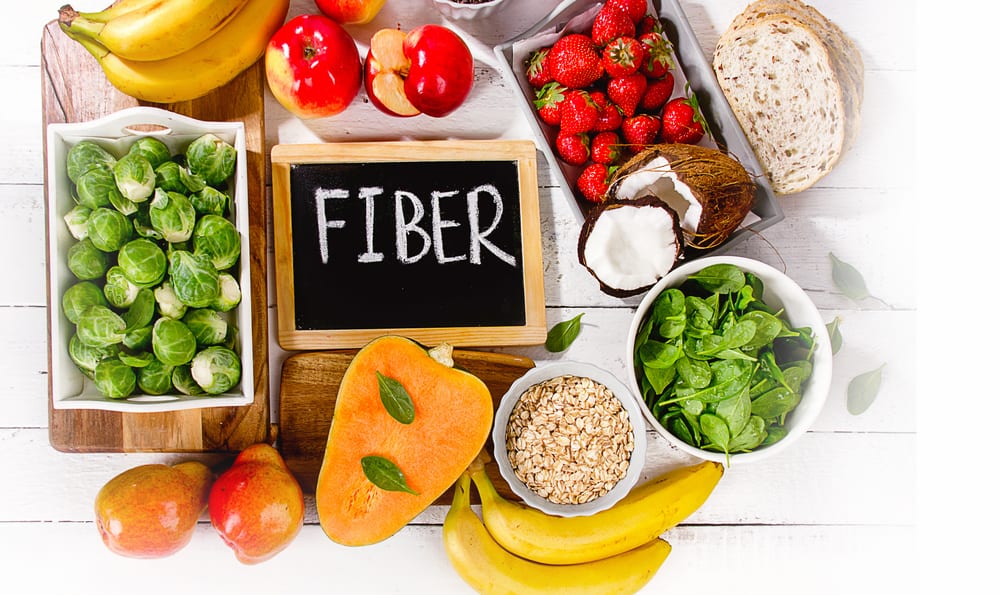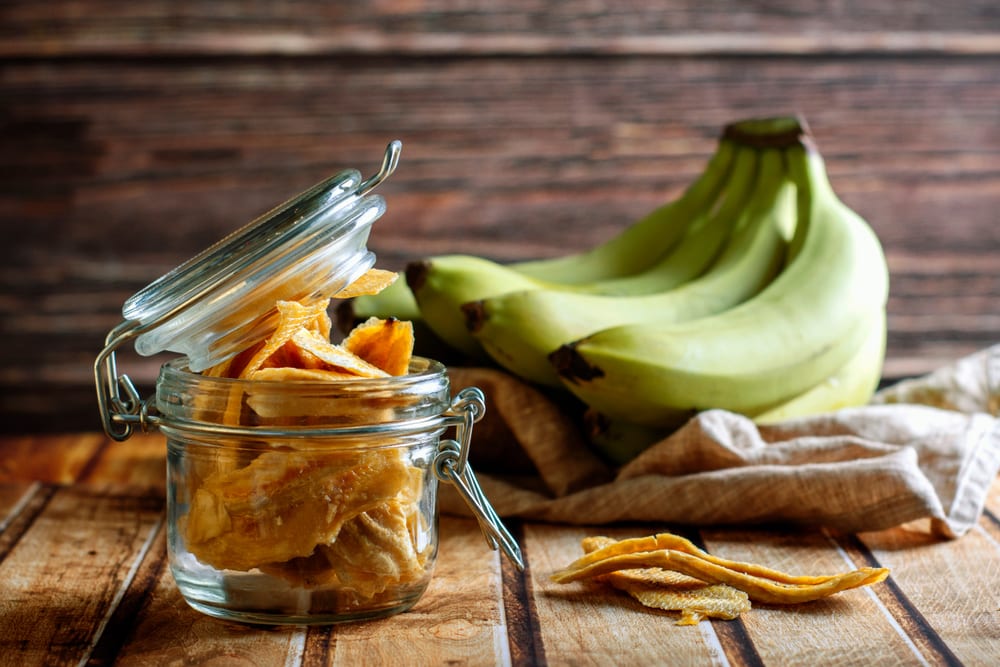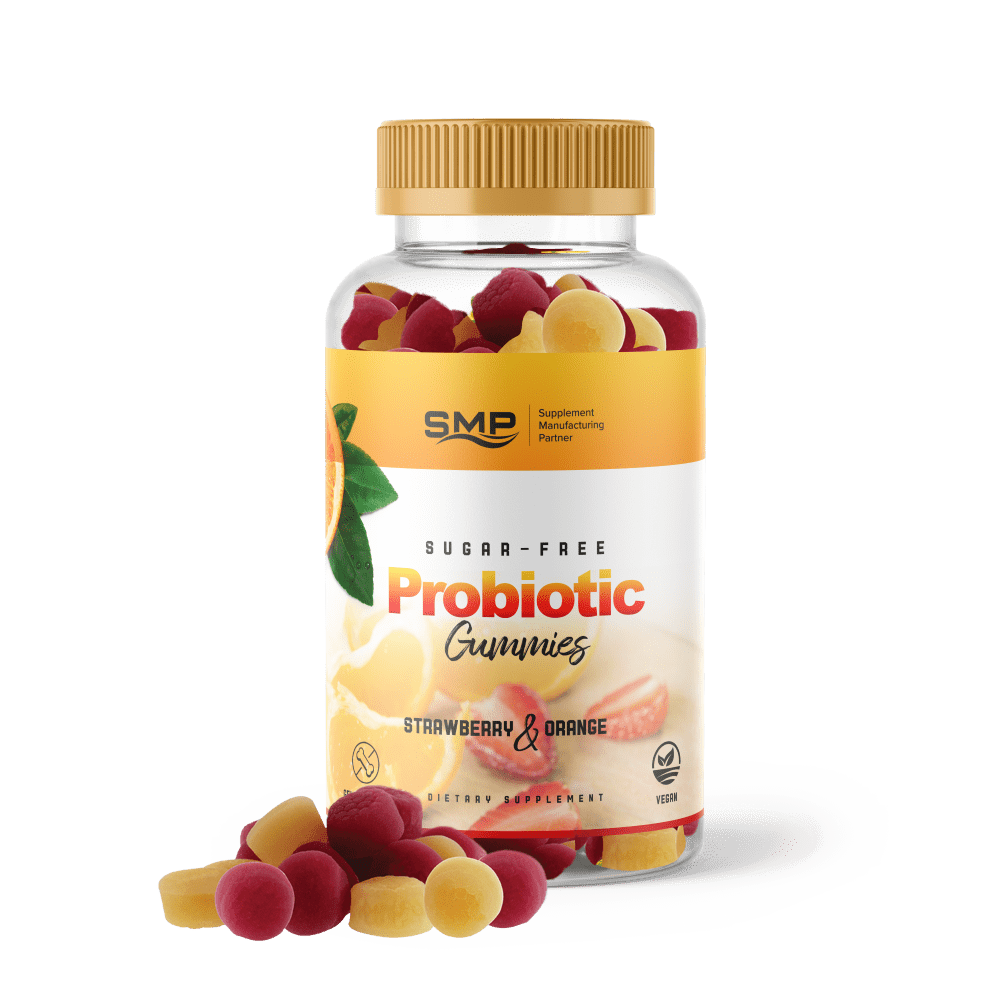
These days, digestive health is one of the top health concerns for Americans (1) In fact, 86% of people in the U.S. say they regularly experience gastrointestinal issues (2).
Yet, not only is digestive health on the minds of increasing numbers of people, but it is also big business. In fact, predictions show the sector will grow at 7.2% annually until 2023 (3). Specifically, market experts predict that the global probiotics market will grow to an over $73.0 billion sector by 2024 (4).
Trending Now: Digestive Health
Digestive health products are trending across the food industry, For example, at the end of 2018, the Cincinnati-based Kroger Co. listed gut-healthy foods as “one of its five leading trends heading into the new year.”
In addition, consultancy agency New Nutrition Business named digestive wellness as its top trend for 2019. On top of that, shelf-stable products containing new strains of probiotics have created even more digestive health food options for consumers (5).
Katherine Leaderbrand, consumer health industry analyst, Euromonitor International says that older adults are spending the most money on digestive health products. This is because digestive health issues problems are much more prevalent among older people (6). As increasing numbers of Baby Boomers cross the half-century mark, healthcare spending in on digestive health will only continue increasing.

The Ingredients Behind the Digestive Health Boom
Below are 7 ingredients driving the current boom in the digestive health sector:
1. Probiotics
Meaning for life, probiotics are one of the most popular dietary supplements. Although the human gut naturally contains these microorganisms, sometimes, these beneficial bacteria can get out of balance. As a result, taking probiotics helps to restore the balance or helpful bacteria in their gut and aids digestion. What’s more, some people take them for weight loss and to boost their immune system.
As a dietary supplement, probiotics come several forms — powders, tablets, capsules or other forms. Regarding the ingredient, the term ‘probiotics’ refers to the friendly bacteria which manufacturers add to these products. Several varieties of bacteria are used in probiotics. Two of the most common are Lactobacillus and Bifidobacterium. Additionally, some yeasts (like Saccharmyces) have probiotic properties. Depending on the specific additive or product, a dose of probiotics many have between 1 billion or as many as 250 billion of these ‘friendly bacteria’ (7).
2. Prebiotics
Not to be confused with probiotics, prebiotics are “foods (typically high-fiber foods) that act as food for human microflora. Prebiotics are used with the intention of improving the balance of these microorganisms” (8).
In general, dietary prebiotics are nondigestible fibers that aren’t affected by heat, stomach acids, oxygen, and enzymes. They pass through your gut undigested and encourage good bacteria and other microorganisms (microflora) to grow (9). When they arrive in your gut, they help to feed all the friendly bacteria found naturally in your gut (10).
Prebiotics offer several health benefits. Hannah D. Holscher, assistant professor of nutrition at the University of Illinois says that they can help lower inflammation throughout your body, fight off harmful gut bacteria, and boost immunity. She also believes they could positively impact blood cholesterol and triglyceride levels as well as be good for your mental health (11).
3. Synbiotics
Synbiotics combine both probiotics and prebiotics. Not only does tis still have all the properties of both, but some people believe the combination is synergistic. This means that the two working together accomplish more good things in your body than if you only took one (1).
4. Abiotics
Abiotics are non-viable (dead) probiotics or cells that can produce health benefits. For example, some people take non-viable probiotics because their bodies handle them more easily than viable (living) probiotics (1).

5. Dietary Fiber
The average American doesn’t get enough dietary fiber. Why is this a problem for digestive health? Because without it, your digestive system doesn’t work as well as it could. Specifically, dietary fiber keeps things moving through your GI tract. Also, the friendly bacteria in your gut feeds on dietary fiber. On top of those things, dietary fiber also fills you up and makes you feel full longer (12). Also, a high-fiber diet can help you control your blood sugar and cholesterol levels (13).
6. Digestive Enzymes
Under normal circumstances, the human body produces enough digestive enzymes naturally in the mouth, stomach, small intestine, gallbladder, and pancreas (14).
However, certain health issues (like irritable bowel syndrome (IBS) and inflammatory bowel disease) may hinder the body’s ability to produce these enzymes. Also, age, stress, inflammation, genetics, and dietary choices can keep your body from producing enough digestive enzymes.
Consequently, some people need extra digestive enzymes. These enzymes include Amylase, Protease, Lipase, Maltase, and others (15). A digestive supplement may contain one or even several of these enzymes.

7. Fermented Foods
In 2017, Whole Foods predicted that fermented foods would become a new trend among its customers (5). These days, it’s common for people in America to consume foods and drinks like kombucha (a fermented sweet tea) and kimchi (a popular Korean condiment made from pickled vegetables). Other popular fermented foods include yogurt, sauerkraut, tempeh (made from fermented soybean), and kefir (a beverage made from fermented milk (16).
Food scientist Robert Hutkins, PhD, of the University of Nebraska-Lincoln says, “If you’re consuming a diet rich in fermented foods, you’re essentially bathing your GI tract in healthy, food-related organisms (16).” Their rise in popularity makes fermented foods one of the top ingredients driving the booming digestive health sector.

Conclusion
It may come as a surprise that the human gut contains trillions of beneficial microorganisms. When these friendly organisms are healthy, then the rest of you is healthy too. In contrast, when your ‘gut flora’, these tiny things living in your gut, are out of balance, the rest of your body suffers too.
Dietary supplements and functional foods with one or more of these ingredients can help you maintain the proper balance of friendly bacteria.
Manufacture Your Supplements With SMP Nutra
SP Nutra is your go-to manufacturer for all things nutraceutical. We offer some of the fastest lead times along with some of the lowest prices. You can view all of our stock private label supplements here.
References
- https://khni.kerry.com/news/webinars/webinar-digestive-health-know-your-ingredients/
- https://khni.kerry.com/news/blog/digestive-health-part-ii-consumers-take-control/
- https://www.marketwatch.com/press-release/digestive-enzymes-market-2019–global-industry-scenario-by-key-companies-future-trend-pipeline-projects-product-application-growth-and-regional-forecasts-to-2023-2019-05-09
- https://www.marketwatch.com/press-release/probiotics-market-share-will-exceed-us-730-billion-by-2024-2019-05-03?mod=mw_quote_news
- https://www.foodbusinessnews.net/articles/12959-digestive-health-a-top-trend-heading-into-2019
- https://www.naturalproductsinsider.com/digestive-health/growth-digestive-health-market-and-popular-ingredients
- http://www.berkeleywellness.com/supplements/other-supplements/article/probiotics-pros-and-cons
- https://www.mayoclinic.org/healthy-lifestyle/consumer-health/expert-answers/probiotics/faq-20058065
- https://en.wikipedia.org/wiki/Prebiotic_(nutrition)
- https://www.bimuno.com/prebiotics/
- https://news.yahoo.com/prebiotics-144834014.html
- https://www.webmd.com/diet/features/fiber-digestion
- https://www.mayoclinic.org/healthy-lifestyle/nutrition-and-healthy-eating/in-depth/fiber/art-20043983
- https://www.health.com/digestive-health/digestive-enzymes
- https://www.womenshealthnetwork.com/digestivehealth/what-are-digestive-enzymes.aspx
- https://www.webmd.com/food-recipes/news/20170213/could-fermented-foods-boost-your-health#1


